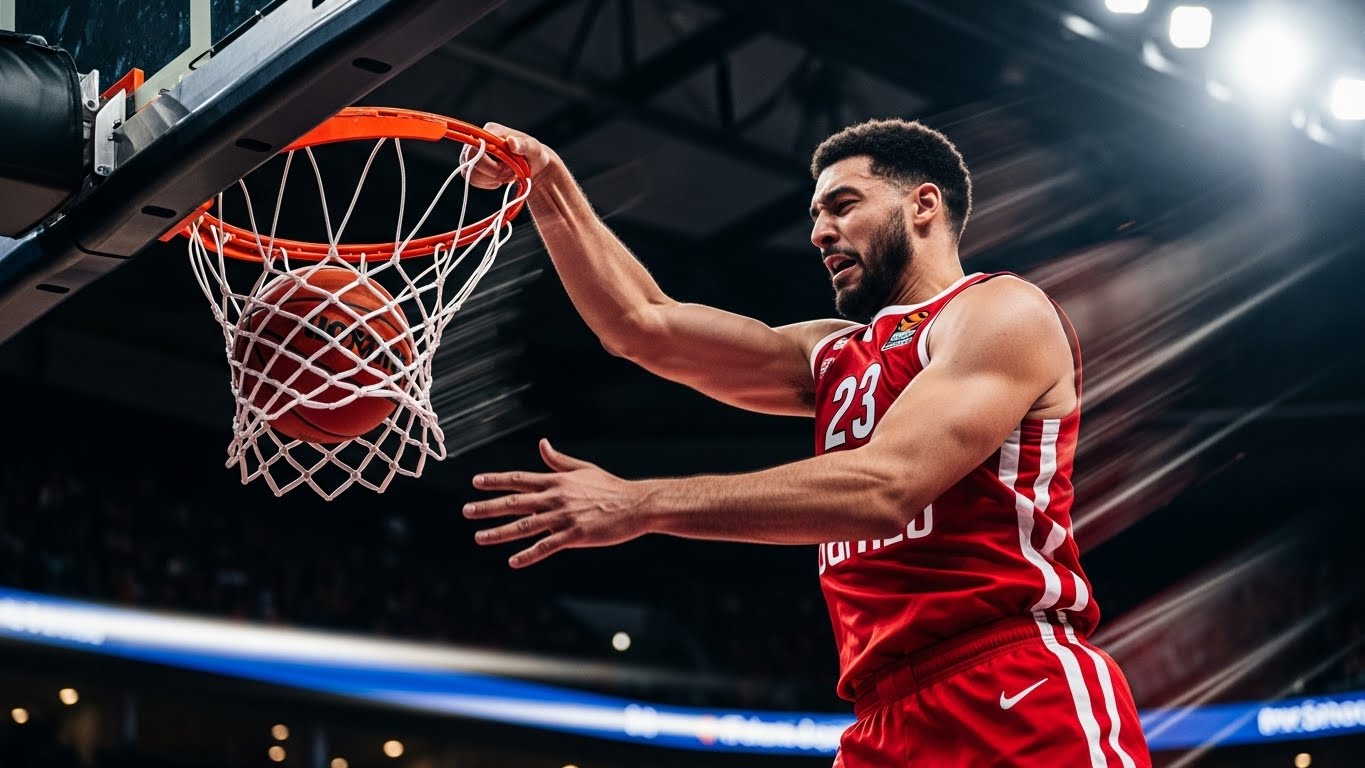Athletic performance is often associated with physical skills, technique, and mental toughness. However, one of the most crucial yet often overlooked factors in an athlete’s success is nutrition. The food we consume directly impacts how our body functions, recovers, and performs, and when it comes to athletes, their nutritional choices can make or break their performance. Proper nutrition isn’t just about fueling the body with calories—it’s about providing the right nutrients to optimize energy, support muscle recovery, and enhance endurance.
In this blog post, we’ll explore how nutrition plays a pivotal role in athletic performance, the different types of nutrients athletes need, and how athletes can use nutrition to give themselves a competitive edge.
1. The Foundation: Macronutrients and Their Impact
Macronutrients—proteins, carbohydrates, and fats—form the foundation of any athlete’s diet. Each of these macronutrients plays a distinct and essential role in optimizing performance, recovery, and overall health.
Carbohydrates: The Primary Source of Energy
Carbohydrates are often referred to as the body’s preferred fuel source for high-intensity activities. Whether an athlete is sprinting, lifting weights, or competing in endurance events, carbohydrates provide the quick-release energy needed for peak performance. Stored as glycogen in muscles and the liver, carbohydrates fuel both aerobic and anaerobic energy systems, enabling athletes to maintain energy levels during prolonged activity.
Endurance athletes, such as long-distance runners or cyclists, often rely on a higher carbohydrate intake to maximize their glycogen stores. This strategy, known as carb-loading, can significantly improve stamina and delay fatigue during events.
Proteins: Building and Repairing Muscle Tissue
While carbohydrates fuel energy, protein is crucial for the repair and growth of muscle tissue. When athletes engage in high-intensity training, their muscles undergo stress and micro-tears. Protein helps repair these micro-tears and rebuild muscle fibers, ultimately leading to strength gains and muscle growth. For athletes involved in strength training, bodybuilding, or sports with explosive movements, protein intake becomes even more important.
The recommended daily protein intake varies based on an athlete’s activity level and goals, but most experts suggest consuming around 1.2 to 2.0 grams of protein per kilogram of body weight. Athletes should focus on consuming high-quality protein sources, such as lean meats, poultry, fish, dairy, and plant-based proteins like beans, lentils, and tofu.
Fats: Essential for Energy and Hormonal Balance
Fats are often misunderstood, with many associating them solely with weight gain. However, healthy fats are a critical component of an athlete’s diet. Fats provide a long-lasting source of energy, especially during lower-intensity activities. They also help with the absorption of fat-soluble vitamins (A, D, E, and K) and are essential for maintaining proper hormonal function.
Omega-3 and omega-6 fatty acids, found in foods like fish, flaxseeds, walnuts, and olive oil, are particularly beneficial for reducing inflammation and supporting heart health. These fats help athletes recover after intense workouts and improve joint health, ensuring that they can continue training at a high level.
2. Micronutrients: The Unsung Heroes
While macronutrients often steal the spotlight in discussions about nutrition and athletic performance, micronutrients—vitamins and minerals—are just as essential, albeit in smaller quantities. These nutrients play vital roles in energy production, immune function, and muscle contraction.
Iron: Oxygen Transport and Endurance
Iron is an essential mineral that helps transport oxygen through the bloodstream, which is especially important for athletes engaged in endurance sports. A deficiency in iron can lead to anemia, causing fatigue, weakness, and decreased performance. Endurance athletes, particularly female athletes, are at an increased risk of iron deficiency, as iron is lost through sweat, menstruation, and the physical demands of training.
Good dietary sources of iron include red meat, spinach, legumes, and fortified cereals. Iron-rich foods, when consumed with vitamin C, can enhance iron absorption, ensuring athletes maintain adequate levels.
Calcium and Vitamin D: Bone Health and Muscle Function
Calcium and vitamin D are critical for bone health and muscle function. Calcium supports bone density, preventing stress fractures and injuries, while vitamin D helps with calcium absorption. Both nutrients are vital for athletes who engage in high-impact sports or weight-bearing activities.
Athletes who train indoors or live in regions with limited sunlight may be at risk for vitamin D deficiency, which can impair calcium absorption and muscle recovery. Dairy products, fortified plant-based milks, leafy greens, and sunlight exposure are the best sources of these nutrients.
Sodium and Potassium: Electrolyte Balance and Hydration
Electrolytes, such as sodium, potassium, and magnesium, play a crucial role in maintaining fluid balance, muscle function, and nerve transmission. During intense exercise, athletes sweat and lose electrolytes, which can lead to dehydration, muscle cramps, and fatigue.
Maintaining a proper electrolyte balance is especially important for athletes in hot climates or those participating in endurance sports. Consuming foods rich in potassium, such as bananas, oranges, and potatoes, and replenishing sodium levels through sports drinks or electrolyte tablets can help prevent dehydration and muscle cramps.
3. Hydration: The Cornerstone of Performance
Hydration is arguably one of the most critical aspects of athletic performance, and it often goes overlooked. The body is made up of around 60% water, and staying properly hydrated ensures that muscles, organs, and cells function optimally during exercise.
Dehydration can impair physical performance, reduce endurance, and increase the risk of injury. It can also affect cognitive function, leading to a decrease in focus, coordination, and decision-making skills—critical elements of athletic performance.
How Much Water Do Athletes Need?
The amount of water an athlete needs depends on factors such as body size, activity level, and the climate in which they’re training. As a general guideline, athletes should aim to drink around 0.5 to 1 liter of water per hour of exercise. Additionally, sports drinks containing electrolytes can be beneficial for longer training sessions (over 90 minutes) or for activities in hot and humid conditions.
To ensure proper hydration, athletes should also focus on drinking water throughout the day, not just during exercise, as this helps maintain fluid balance. Monitoring urine color can be a helpful indicator of hydration—pale yellow urine typically indicates adequate hydration, while dark urine can signal dehydration.
4. The Timing of Nutrition: When to Eat for Optimal Performance
It’s not just about what you eat—it’s also about when you eat. For athletes, timing meals and snacks around training sessions can have a significant impact on performance and recovery.
Pre-Workout Nutrition: Energizing the Body
The goal of a pre-workout meal is to fuel the body with easily digestible carbohydrates and moderate protein, while minimizing fat and fiber, which can cause digestive discomfort. A good pre-workout meal should be consumed about 1.5 to 2 hours before exercise.
Examples of pre-workout meals include a banana with peanut butter, a bowl of oatmeal with berries, or a whole-grain toast with eggs. These foods provide the body with the necessary fuel for high-energy performance without causing an upset stomach.
Post-Workout Nutrition: Maximizing Recovery
Post-workout nutrition is all about replenishing glycogen stores, repairing muscle tissue, and reducing inflammation. Consuming a combination of carbohydrates and protein within 30 minutes to an hour after exercise is ideal. Carbohydrates help restore glycogen, while protein helps with muscle repair and growth.
An ideal post-workout meal could include a protein shake with a banana, a turkey sandwich on whole grain bread, or a quinoa salad with chickpeas and vegetables. Proper post-workout nutrition helps athletes recover faster and prepare for their next training session.
5. Supplements: When to Consider Adding Extras
While a well-balanced diet should provide most of the nutrients an athlete needs, there are times when supplements can be beneficial. Common supplements used by athletes include protein powders, creatine, BCAAs (branched-chain amino acids), and omega-3 fatty acids.
However, supplements should never replace a balanced diet; they are meant to supplement gaps in nutrition. Before incorporating supplements into your routine, it’s best to consult with a registered dietitian or sports nutritionist to ensure that they’re safe and effective for your specific needs.
Conclusion: Nutrition as the Secret Weapon for Success
In the competitive world of sports, the difference between an athlete’s good performance and great performance often comes down to nutrition. The right combination of macronutrients, micronutrients, hydration, and timing can optimize energy, enhance endurance, speed up recovery, and minimize the risk of injury.
Athletes who understand the vital role that nutrition plays in their performance can use it as a powerful tool to give themselves a competitive edge. By fueling the body with the right foods and nutrients, athletes can unlock their full potential and take their performance to new heights.
In the end, nutrition is not just about eating to survive; it’s about eating to thrive. Every meal, every snack, and every nutrient consumed has the potential to shape an athlete’s success. As we continue to understand more about the science of nutrition, the link between proper fueling and athletic excellence becomes clearer—and athletes who embrace this knowledge will be well-positioned to dominate their sport for years to come.



